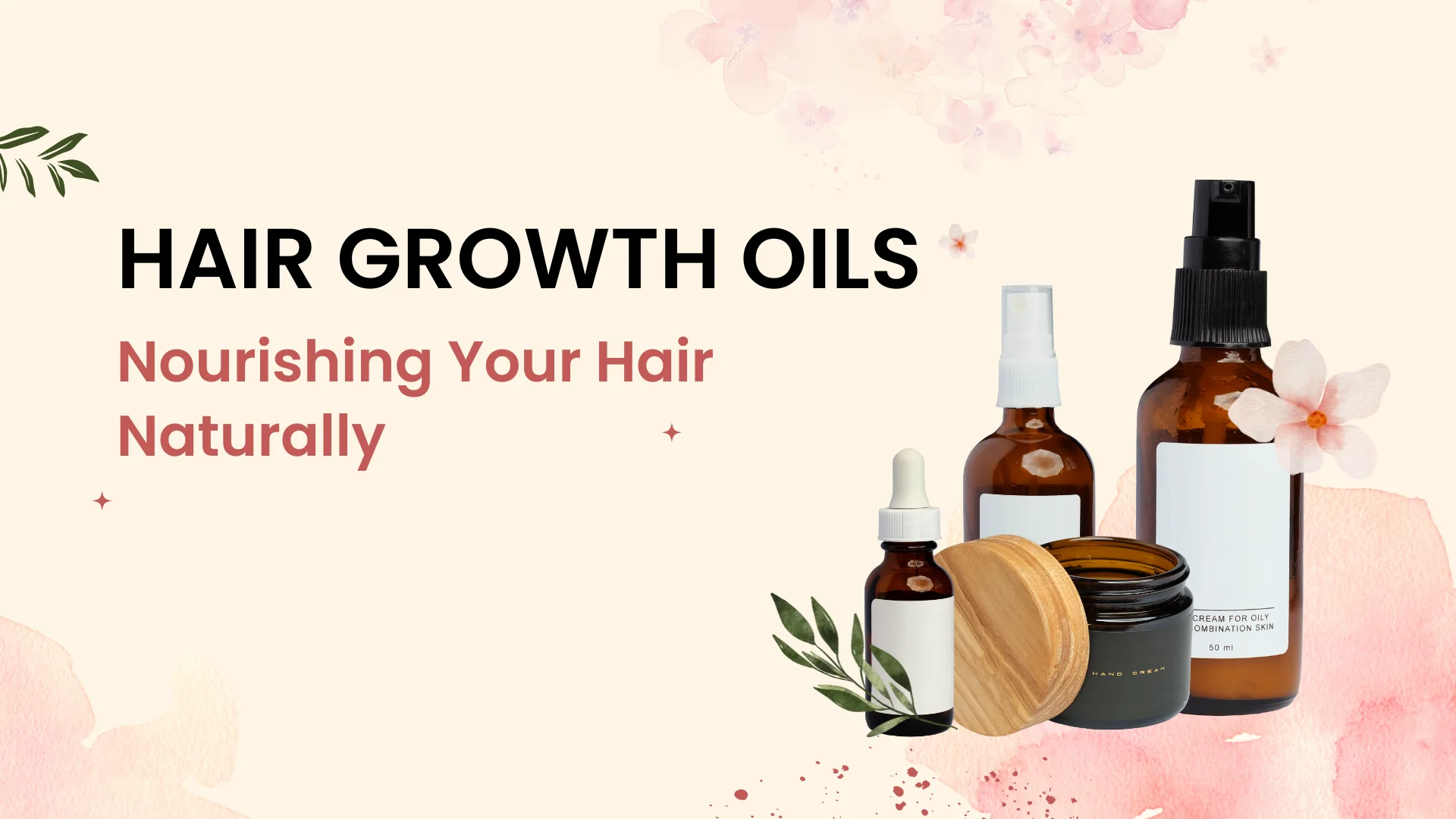Hair growth is a subject that captures a lot of attention as many people are looking for effective ways to boost the health of their hair. Over the years hair growth oils have become increasingly popular as an easy and convenient method to improve the strength and vitality of one’s hair. In this article we will delve into the advantages, application methods, ingredients and factors to consider when using hair growth oils.
Understanding Hair Growth
The process of hair growth is intricate and influenced by a variety of factors such, as genetics, age, hormonal changes, and diet and lifestyle choices. The cycle of hair growth involves three phases; the growth phase (anagen) transitional phase (catagen) and resting phase (telogen). Having an understanding of this cycle is essential, in grasping how hair growth oils can aid in promoting hair development.
What are Hair Growth Oils?
Hair growth oils are formulated using a combination of natural ingredients, including essential oils and carrier oils, known for their nourishing and stimulating properties. These oils are specifically designed to target the scalp and hair follicles, promoting optimal conditions for hair growth and maintenance.
Popular Types of Hair Growth Oils
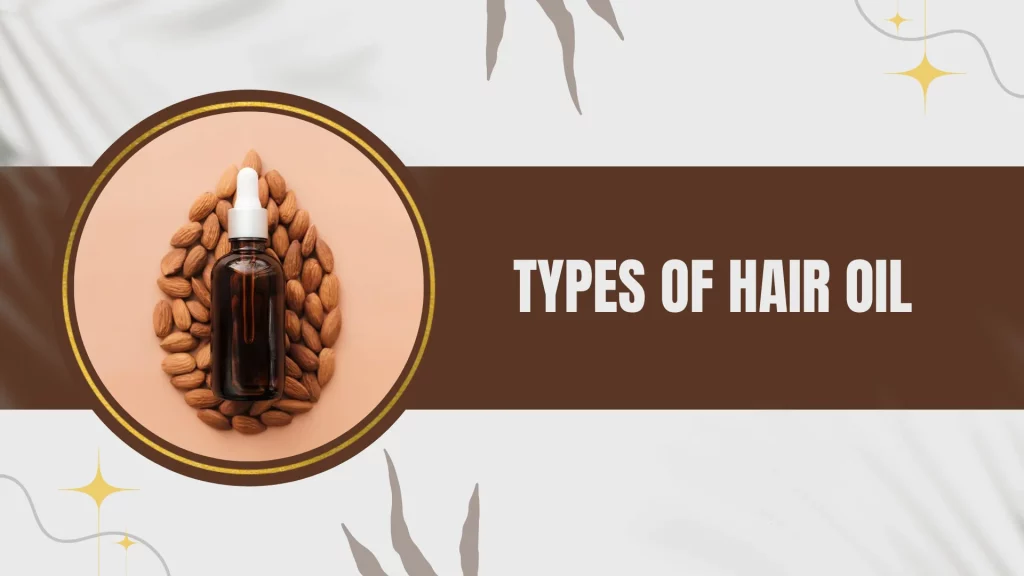
- Coconut oil: Rich in fatty acids, coconut oil penetrates the hair shaft to moisturize and strengthen the hair.
- Castor oil: Known for its thick consistency, castor oil stimulates blood circulation to the scalp and promotes hair growth.
- Rosemary oil: Rosemary essential oil has been proven to enhance hair density and blood flow making it a great option, for promoting hair growth.
- Argan oil: Packed with antioxidants and vitamins, argan oil nourishes the scalp and promotes overall hair health.
- Jojoba oil: Similar in composition to the skin’s natural oils, jojoba oil hydrates the scalp and helps balance sebum production.
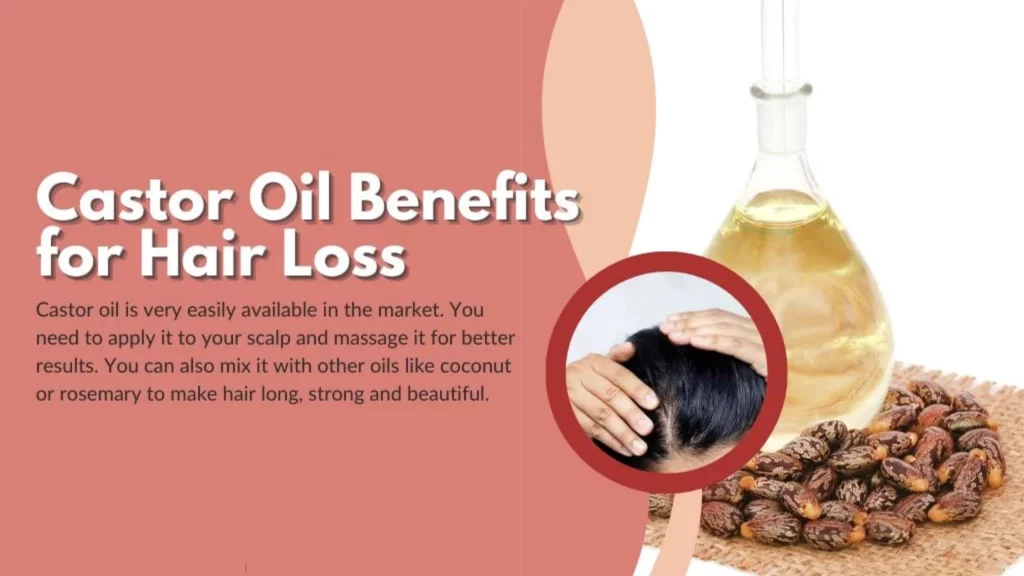
Essential Oils
- Lavender oil: Soothes the scalp and promotes relaxation, which can support healthy hair growth.
- Peppermint oil: Known for its cooling sensation, peppermint oil can help improve blood circulation to the scalp and stimulate hair follicles.
- Cedarwood oil: Has antimicrobial properties that can help maintain a healthy scalp environment and reduce dandruff.
- Lemongrass oil: Ads shine to the hair and can help strengthen hair follicles, reducing breakage.
Carrier Oils
- Sweet almond oil: Rich in vitamins and minerals, sweet almond oil moisturizes and nourishes the scalp and hair.
- Grapeseed oil: Lightweight and non-greasy, grapeseed oil helps seal moisture into the hair without weighing it down.
- Avocado oil: Avocado oil is rich, in vitamins A, D and E along, with omega fatty acids that support hair nourishment and strength.
- Olive oil: Olive oil is famous, for its ability to condition hair making it softer and reducing frizz.
DIY Hair Growth Oil Recipes
If you enjoy getting your hands dirty creating your hair growth oil can be an enjoyable and budget friendly choice. Here are some easy do it yourself formulas to experiment with;
- Coconut and Rosemary Oil Blend:
- Mix equal parts coconut oil and rosemary essential oil.
- Apply to the scalp and hair, focusing on the roots.
- Leave on for at least 30 minutes before shampooing out.
- Castor and Argan Oil Treatment:
- Combine one tablespoon of castor oil with two tablespoons of argan oil.
- Warm the mixture slightly and massage into the scalp.
- Wrap hair in a towel or shower cap and leave on overnight before washing out.
- Lavender and Jojoba Scalp Massage Oil:
- Mix five drops of lavender essential oil with one tablespoon of jojoba oil.
- Gently massage into the scalp using circular motions.
- Leave on for at least 15 minutes before rinsing out.
Natural Ingredients in Hair Growth Oils
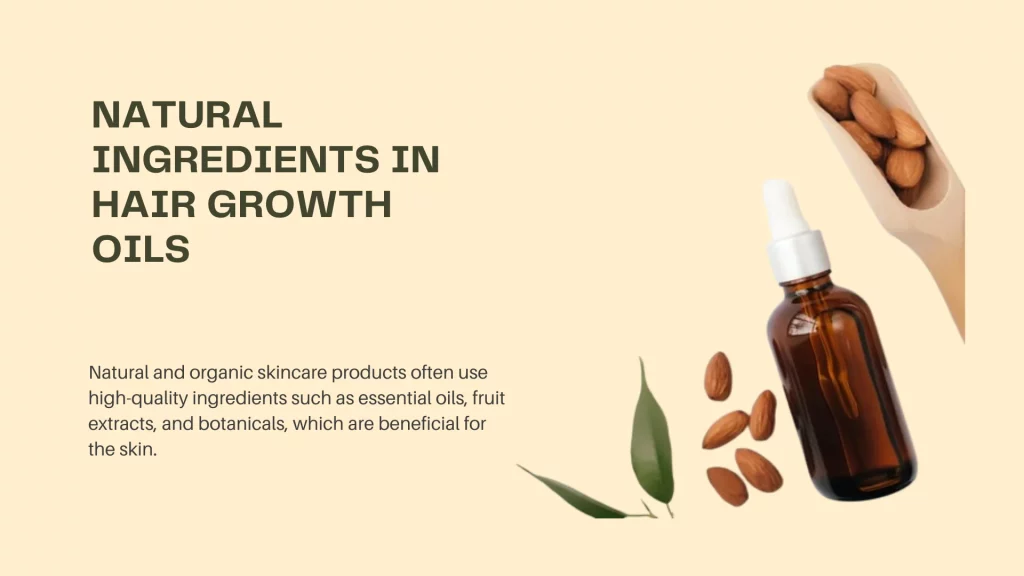
Hair growth oils often contain a blend of essential oils and carrier oils, each offering unique benefits for hair health and growth.
Frequency of Use
The frequency at which individuals use hair growth oils can differ based on their preferences and hair requirements. Some individuals may choose to apply them while others may opt for treatments.
Application Methods
- Scalp massage: Gently massage the oil into the scalp using circular motions to improve circulation and promote absorption.
- Oil treatments: Apply the oil to damp hair and leave it on for several hours or overnight before washing it out with a gentle shampoo.
- Mixing with other products: Add a few drops of hair growth oil to your regular shampoo, conditioner, or hair mask for added nourishment and benefits.
How to Use Hair Growth Oils
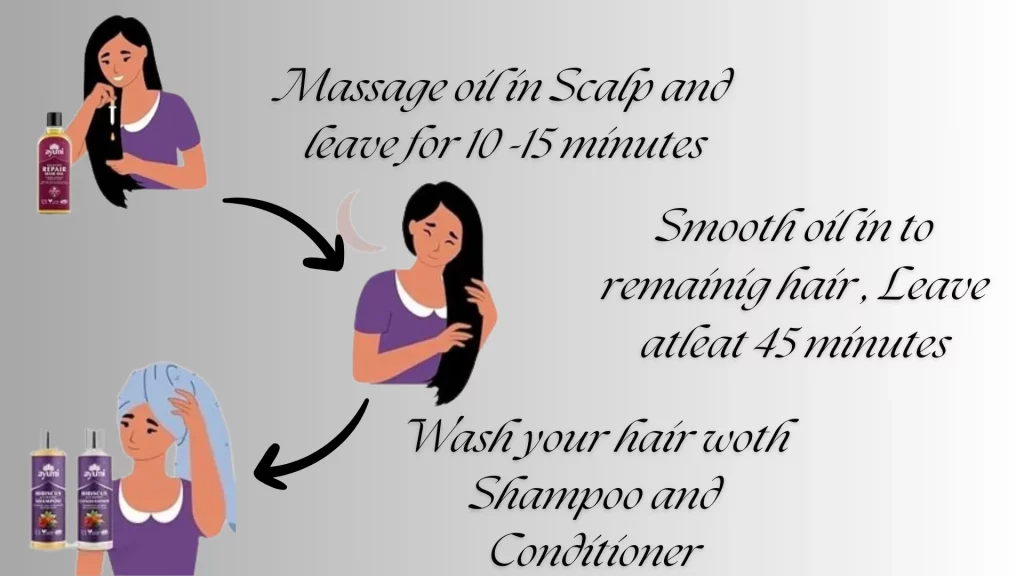
Hair growth oils can be applied directly to the scalp and hair using various methods, including massage, oil treatments, or as an ingredient in hair masks or shampoos.
Choosing the Right Hair Growth Oil
When faced with a variety of choices picking the hair growth oil may feel like a task. Yet taking into account aspects, like your hair texture, personal preferences and specific needs can make the selection process more manageable.
Understanding Your Hair Type and Needs
Various hair textures can benefit from oil types. For instance people, with damaged hair may find oils such as coconut or castor oil more suitable whereas those with fine hair may choose lighter options, like argan or jojoba oil.
Potential Side Effects of Hair Growth Oils
Hair growth oils are usually safe, for individuals. It’s important to watch out for potential side effects.
Allergic Reactions
Certain people might have reactions, to oils or ingredients. Before trying a product it’s an idea to do a patch test first and stop using it if you notice any negative reactions.
Scalp Irritation
Overusing growth oils or applying them directly on the scalp can lead to irritation or inflammation at times. If you feel any discomfort consider reducing how often you use the oil or mix it with a carrier oil.
Combining Hair Growth Oils with Other Hair Care Practices
For results with hair oils it is important to include them as part of a rounded hair care regimen.
Healthy Diet and Hydration
Ensuring you have a rounded diet filled with vitamins, minerals and antioxidants is key, to promoting healthy hair. Remember to keep yourself hydrated, by drinking water as lack of hydration can impact the growth and condition of your hair.
Benefits of Using Hair Growth Oils
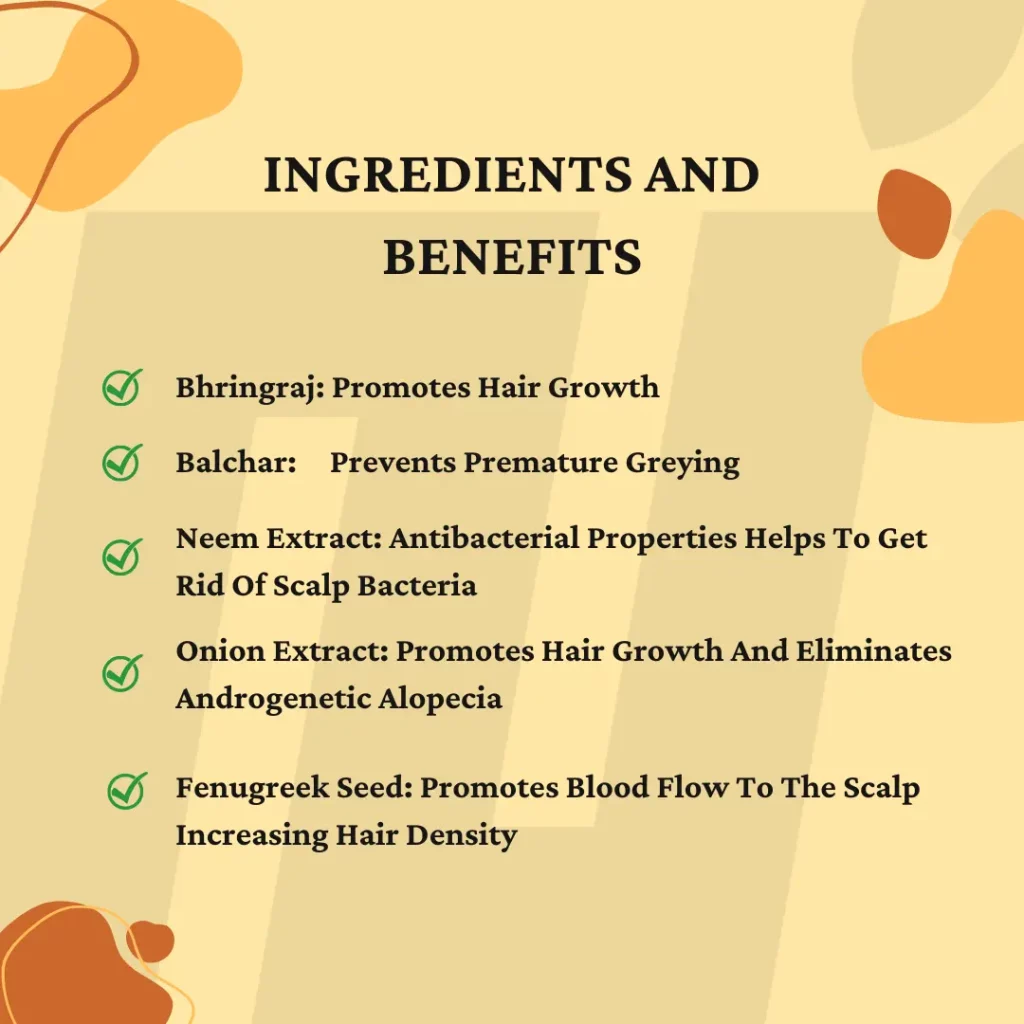
Nourishment and Hydration
Hair growth oils provide essential nutrients and hydration to the scalp and hair follicles, creating an optimal environment for healthy hair growth.
Stimulating Hair Follicles
Many hair growth oils contain ingredients that stimulate blood circulation to the scalp, which can promote hair follicle activity and encourage new hair growth.
Improving Hair Strength and Texture
Regular use of hair oils can help strengthen the hair shaft, reduce breakage, and improve overall hair texture, resulting in smoother and more resilient strands.
Real-Life Experiences and Results
- “I initially had doubts, about trying hair growth oils. Once I witnessed the changes myself I became a firm believer. My hair now looks thicker, healthier. Has a radiance.”
- “Throughout the years I’ve experimented with hair growth treatments. None have matched the effectiveness of argan oil. Its light texture oily feel and ability to make my hair feel smooth and luxurious set it apart.”
Regular Scalp Massage
Regularly massaging your scalp along, with using oils can boost blood circulation alleviate stress and enhance relaxation all of which support the health of hair.
Customer Feedback on Popular Hair Growth Oils
- “I’ve been using coconut oil for months, and my hair has never looked better! It’s thicker, shinier, and healthier than ever before.”
- “Castor oil has been a game-changer for me. My hair was thinning, but after using it consistently for a few months, I’ve noticed significant regrowth and volume.”
Reviews and Testimonials
Before experimenting with a hair growth oil it can be beneficial to read reviews and testimonials from users to gain insights, into their experiences and outcomes.
FAQs (Frequently Asked Questions)
- How long does it take to see results from using hair growth oils? The outcomes can differ based on factors, like hair type and condition. A lot of individuals typically begin to see enhancements, in the texture and growth of their hair after a few weeks to months of regular application.
- Can hair growth oils help with hair loss or baldness? While hair growth oils can’t reverse baldness or severe hair loss, they can help improve the overall health and condition of the hair and scalp, which may support hair growth and reduce hair fall.
- Are there any specific oils recommended for different hair types? Indeed certain oils are more appropriate, for hair types. For instance individuals with damaged hair might find oils such as coconut or castor oil beneficial whereas those with fine hair may lean towards lighter options, like argan or jojoba oil.
- Is it safe to use multiple hair oils together? It’s usually okay to combine hair growth oils to make a blend that suits your needs. Just remember to do a patch test beforehand to check for any allergies and ensure they work well together.
- Is there an age limit, for using growth oils? Hair growth oils are suitable, for individuals of any age including children and the elderly. Nevertheless parents should be careful when applying oils on children and ensure proper dilution to prevent skin irritation.

